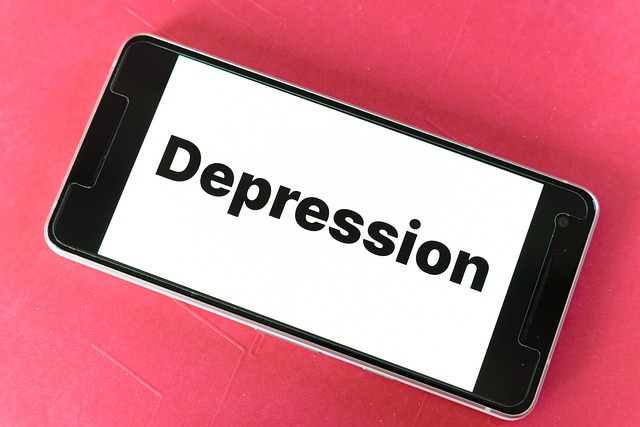Virtual therapy sessions have revolutionized mental healthcare by eliminating geographical constraints, providing increased accessibility and convenience for clients. This technology-driven approach offers flexibility in scheduling, cost savings, and the comfort of home-based counseling, benefiting those in remote areas or with limited mobility. While challenges like the digital divide and ethical considerations exist, continuous technological advancements and specialized training ensure effective and personalized treatment options through virtual therapy sessions, transforming mental health support globally.
In today’s digital age, remote psychological counseling, or virtual therapy sessions, has emerged as a transformative force in mental healthcare. This innovative approach allows individuals to access therapeutic support from the comfort of their homes, breaking down geographical barriers. The article delves into an in-depth exploration of this modern method, covering its benefits for clients, the technologies driving it forward, and the ethical considerations that shape this growing field. Understanding remote counseling’s potential is key to navigating its future prospects and enhancing mental wellness on a global scale.
Understanding Remote Psychological Counseling: An Overview

Remote psychological counseling, often facilitated through virtual therapy sessions, has emerged as a game-changer in mental health care. This innovative approach allows clients to access professional support from the comfort of their homes, breaking down geographical barriers traditionally associated with traditional in-person therapy. With the advancement of technology, video conferencing platforms, and specialized software have made virtual therapy sessions not only possible but also effective.
The benefits of remote counseling are multifaceted. It offers increased accessibility, especially for individuals living in remote areas or those with limited mobility. Virtual therapy sessions also promote convenience, allowing clients to schedule appointments at times that align with their personal schedules. Furthermore, this mode of counseling can be more cost-effective, making mental health services available to a broader spectrum of people who might otherwise face financial barriers.
The Rise of Virtual Therapy Sessions: A Modern Approach

In recent years, the landscape of mental health care has undergone a significant transformation with the advent of virtual therapy sessions. This modern approach to psychological counseling has become increasingly popular as technology advances and folks embrace digital solutions for their everyday needs. The convenience of remote sessions allows clients to access therapy from the comfort of their homes, breaking down geographical barriers that traditionally limited mental health services.
Virtual therapy sessions offer a range of benefits, including enhanced accessibility, flexibility, and cost-effectiveness. With just a stable internet connection, individuals can participate in counseling without navigating busy city centers or facing logistical challenges. This accessibility is particularly beneficial for those living in remote areas or with limited mobility, ensuring they receive the support they need from the comfort of their personal spaces.
Benefits and Advantages for Clients

Remote psychological counseling, facilitated through virtual therapy sessions, offers a plethora of benefits and advantages for clients. One of the key advantages is accessibility; individuals from remote areas or those with limited mobility can now access professional help without having to travel long distances. This flexibility also extends to scheduling, allowing clients to book sessions at times that suit them best, promoting better management of their mental health in alignment with their daily routines.
Furthermore, virtual therapy sessions provide a safe and confidential space for clients to open up and share their experiences without the barriers often associated with face-to-face interactions. The use of technology also enables counselors to utilize a range of evidence-based therapeutic techniques, ensuring that clients receive high-quality care from the comfort of their homes. This modern approach to counseling is especially beneficial for those who prefer or require an alternative to traditional therapy settings.
Overcoming Challenges: Ensuring Effective Remote Counseling

Overcoming Challenges ensures remote counseling stays effective despite the digital divide. Virtual therapy sessions require clear communication channels to foster trust and understanding, addressing potential technical glitches that could disrupt the flow of treatment. Therapists must adapt their approaches, employing creative strategies like video conferencing, secure messaging apps, or email to maintain engagement and confidentiality.
Additionally, establishing a structured routine, defining expectations, and setting specific goals are vital for both therapist and client. Regular check-ins, agreed-upon communication schedules, and the use of digital tools for mood tracking or mindfulness exercises can enhance connection and progress in virtual therapy sessions, ensuring a supportive and effective therapeutic environment.
Technologies Shaping the Virtual Therapy Landscape

The digital revolution has significantly transformed traditional psychological counseling into what is now commonly known as virtual therapy sessions. Video conferencing tools, secure messaging platforms, and specialized therapeutic software are just a few examples of technologies shaping this new landscape. These innovations allow for remote access to mental health services, breaking down geographical barriers and making professional support more accessible.
Virtual therapy sessions offer numerous benefits, including increased flexibility, reduced travel time, and enhanced privacy for clients. Therapists can reach a broader range of individuals, especially those in rural or underserved areas, ensuring that quality mental health care is available to all. With ongoing advancements in technology, the virtual therapy space continues to evolve, promising even more effective and personalized treatment options in the future.
Training and Qualifications for Remote Counselors

In the realm of remote psychological counseling, or virtual therapy sessions, professionals must possess specific skills and qualifications to ensure effective support. Counselors undergoing training in this domain typically focus on mastering digital communication tools while adhering to strict ethical standards. The process involves extensive learning about online assessment techniques, secure data management, and tailored intervention strategies suitable for virtual environments.
Qualified remote counselors should be adept at building rapport and establishing trust with clients over digital platforms. They must also understand the unique challenges associated with virtual therapy sessions, such as potential technical issues and the need to adapt therapeutic approaches to suit online interactions. Continuous professional development in this field is crucial to keeping pace with evolving technology and best practices in remote mental health care.
Ethical Considerations in Online Psychological Services

The rise of remote psychological counseling, facilitated by virtual therapy sessions, brings about a new dynamic in the therapeutic landscape. While offering increased accessibility and convenience for both clients and therapists, it also demands careful navigation of ethical considerations. One key concern is maintaining confidentiality and privacy, as digital platforms can be vulnerable to data breaches or unauthorized access. Therapists must ensure secure video conferencing tools, protect client records, and educate both themselves and their patients on cybersecurity best practices.
Additionally, the non-verbal cues and contextual subtleties that are crucial in traditional therapy settings may be harder to perceive in virtual environments. This could impact the quality of care, so therapists need to develop enhanced communication skills tailored to online sessions. They must also be vigilant about potential digital distractions or technical issues that might disrupt the therapeutic process.
Future Prospects and Growth in Remote Mental Healthcare

The future of remote psychological counseling looks promising, with virtual therapy sessions becoming an increasingly viable and preferred option for many. The global shift towards digital solutions, accelerated by recent events, has opened doors to innovative mental healthcare practices. As technology advances, we can expect more sophisticated platforms and tools to enhance the accessibility and effectiveness of online therapy.
The growth in remote mental healthcare offers several advantages, such as increased reach, reduced barriers to access, and improved convenience for both clients and therapists. Virtual therapy sessions allow individuals from rural or remote areas to receive specialized care without the need for travel. This trend also promotes a more inclusive approach, ensuring that those with limited mobility or social anxiety can benefit from professional support in the comfort of their homes.
